Jean Douchet (1929-2019)
On November 22, French film historian and critic Jean Douchet has passed away at the age of 90. Douchet was born in Arras, not far from the Belgian border. As a twenty year old cinephile and philosophy student at the Sorbonne, Douchet approached Eric Rohmer on the train leaving for the Festival du Film Maudit in Biarritz. “At that time I was as shy as he was. I saw him. I went up to him. We talked all night in the corridor. We discussed Shadow of a Doubt and Notorious, Rossellini, John Ford, Keaton, Renoir, and Murnau. We agreed about everything,” Douchet remembered.1 That 1949 festival edition, he shared a dormitory in Biarritz with Rivette, Truffaut, Chabrol and Rohmer. In 1950, he started writing for La Gazette du cinéma, the short-lived publication founded by Rohmer. In 1957 he joined Cahiers du Cinéma and became a fellow traveller of the Nouvelle Vague. Along with Rohmer, Douchet was co-editor-in-chief of Cahiers in the late 1950s and early ‘60s. In 1964, he enabled Serge Daney to begin working for Cahiers. Douchet was one of the first French advocates of Alfred Hitchcock and Brian De Palma. On the former, he wrote the legendary study Alfred Hitchcock (Editions de l'Herne, 1967), alongside books such as Nouvelle Vague (Cinémathèque française/Hazan, 1998). L’Art d’aimer (Cahiers du Cinéma, 1987) collects his most important texts from Cahiers and Arts from the 60s. He’s also been a teacher at the film school IDHEC (later Fémis) and several French universities. Indefatigable “passeur” and “Socrate de la critique”, Douchet had made an art of introducing and analysing films in close contact and dialogue with the theater audience of his ciné-clubs at the Cinémathèque française or Cinéma du Panthéon, and beyond. Dozens of his talks and lectures can be found on YouTube.
On November 26 at 19h15, La Cinémathèque française will pay homage to Douchet with some tributes followed by a free screening of Jean Douchet, l’enfant agité (Fabien Hagège, Vincent Haasser & Guillaume Namur, 2017) and Saint-Germain des Près (Jean Douchet, 1965). The latter film is part of the Nouvelle Vague omnibus project Paris vu par (1965) which also screens a week later at KASKcinema in Ghent on December 4.
On his website, Srikanth Srinivasan has put up an English translation of the interview with Jean Douchet that introduces La Dvdéothèque de Jean Douchet (Cahiers du Cinéma, 2006), the collection of once-online DVD reviews/columns he did for Cahiers between 2000 and 2006. The obituary of France Culture links to several series of radio interviews with Douchet. On Gallica, the open access library of the Bibliothèque Nationale de France, you have free acces to L'abécédaire de Jean Douchet (2004, 51’) – an A to Z that allows Douchet to revisit his history of cinema.
« La critique est l’art d’aimer. »
« Voir un film c’est vivre sa vie et imaginer celles des autres. »
« Mizoguchi Kenji est au cinéma ce que J.-S. Bach est à la musique, Cervantès à la littérature, Shakespeare au théâtre, Titien à la peinture : le plus grand. »
« Eric Rohmer, c’est celui qui a inventé le cinéma parlant. »
« Faire voir ce que tout le monde a vu mais n’a pas regardé. »
Jean Douchet
“I have to enter the auditorium by the right-hand stairway and aisle. Then I sit to the right of the screen, preferably in the aisle seat, so that I can stretch my legs. This is not just a matter of physical comfort, or the view: I have constructed this vision for myself. For a long time, at the Cinémathèque, I sat in the front row, in the middle, with no one in front to disturb me, in order to be completely immersed in the show, always alone. Even today, it’s impossible for me to go to the cinema with anyone; it disrupts my emotion. But over the years and after many films, I’ve drawn back a bit, off to the right, and I’ve found my axis toward the screen. At the same time, I’ve positioned my spectatorial body with minute care, adopting three basic positions: stretched out on the ground, legs draped over the seat in front of me, and, finally, my favorite but the most difficult posi- tion to achieve, the body folded in four with the knees pressed against the back of the seat in front of me.”
Jean Douchet2
« La Cinémathèque française a l’immense tristesse d’annoncer la disparition de Jean Douchet dans la nuit de jeudi à vendredi. Compagnon de route de la Nouvelle Vague, très grand critique de cinéma, réalisateur et acteur occasionnel, il était aussi un ami fidèle de la Cinémathèque, où il fut, avec son ciné-club, un infatigable passeur de films. Douchet, ou l’art d’aimer. »
La Cinémathèque française
« Nous apprenons avec une grande tristesse la disparition de notre ami Jean Douchet (1929-2019). Depuis ses premiers textes dans les Cahiers à la fin des années 50, Jean resta un compagnon de la revue durant plus de soixante ans. Sa mort laisse beaucoup d’entre nous, critiques actuels et anciens, orphelins de son regard, de son amour des films et de sa passion de transmettre. »
Cahiers du Cinéma
« Adieu Jean, avec toi c’est un continent du cinéma qui disparait et nous, les derniers anciens, on va se sentir seuls maintenant. »
Noël Simsolo
« Mort de Jean Douchet; critique de cinéma, historien, notre maître à tous. Sa pensée traduisait notre passion commune. Il parlait, ses commentaires nous éblouissaient et on suivait la route. Sans lui, ce ne sera plus la même chose. Une pensée émue et reconnaissante. »
Gilles Jacob, president of the Cannes Film Festival (2001-2014)
« Un des plus grands architectes de la cinéphilie en France. »
Festival de Cannes
« [I]l eut une énorme Jaguar pour aller faire ses courses chez le traiteur d’à côté, il affectionnait les foulards, les mocassins et les pulls jaunes, comme l’un des cinéastes qu’il a le mieux défendus, Vincente Minnelli. »
Emmanuel Burdeau3
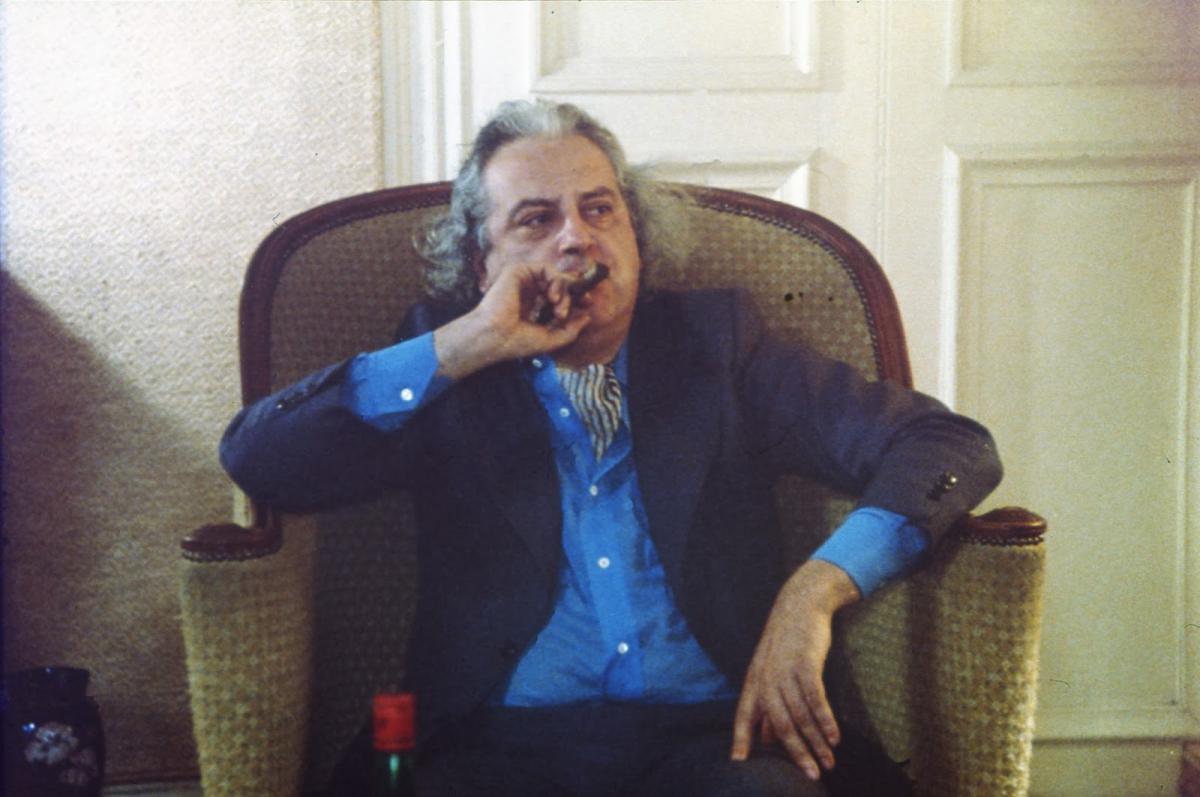 Jean Douchet in Une salle histoire (Jean Eustache, 1977)
Jean Douchet in Une salle histoire (Jean Eustache, 1977)
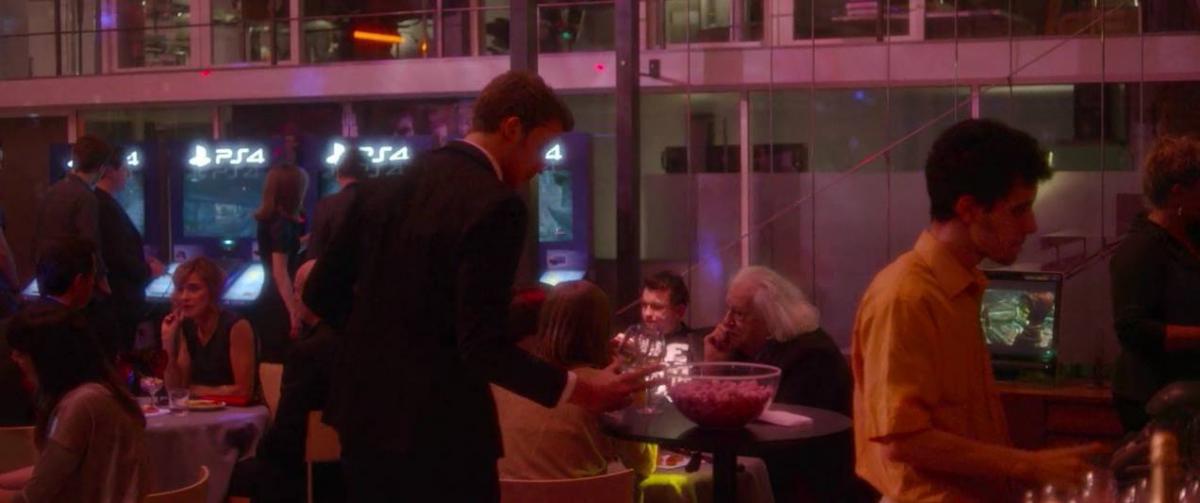 Douchet as a soirée guest in Elle (Paul Verhoeven, 2016) (still: Ayeen Forootan)
Douchet as a soirée guest in Elle (Paul Verhoeven, 2016) (still: Ayeen Forootan)
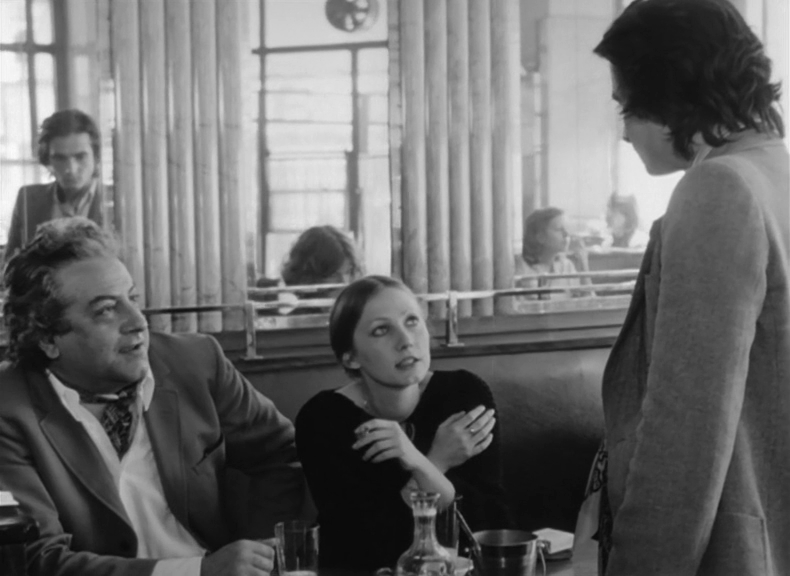 Douchet as a café goer in La maman et la putain (Jean Eustache, 1973).
Douchet as a café goer in La maman et la putain (Jean Eustache, 1973).
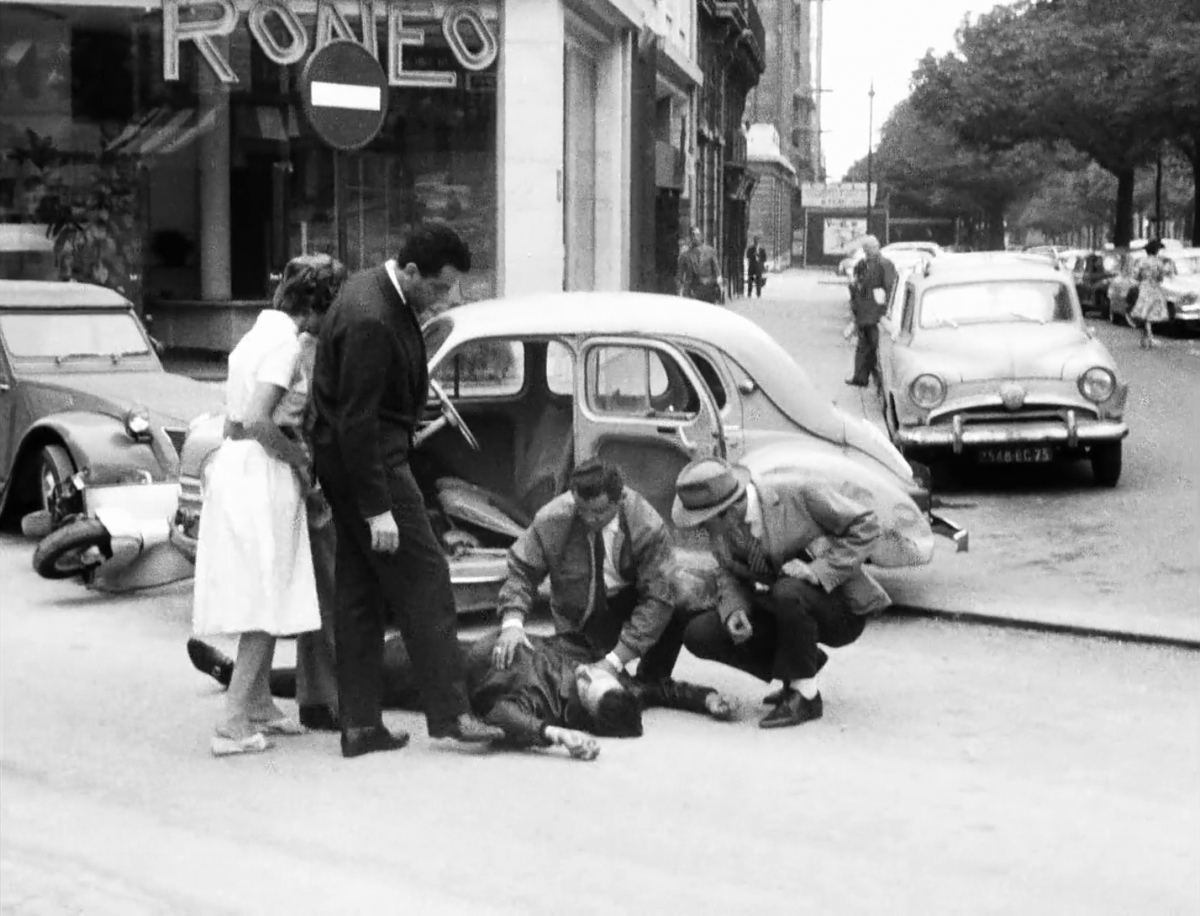 Douchet (the man in the dark suit) in A bout de souffle (Jean-Luc Godard, 1960) as witness to a road accident in which Jacques Rivette plays the corpse
Douchet (the man in the dark suit) in A bout de souffle (Jean-Luc Godard, 1960) as witness to a road accident in which Jacques Rivette plays the corpse
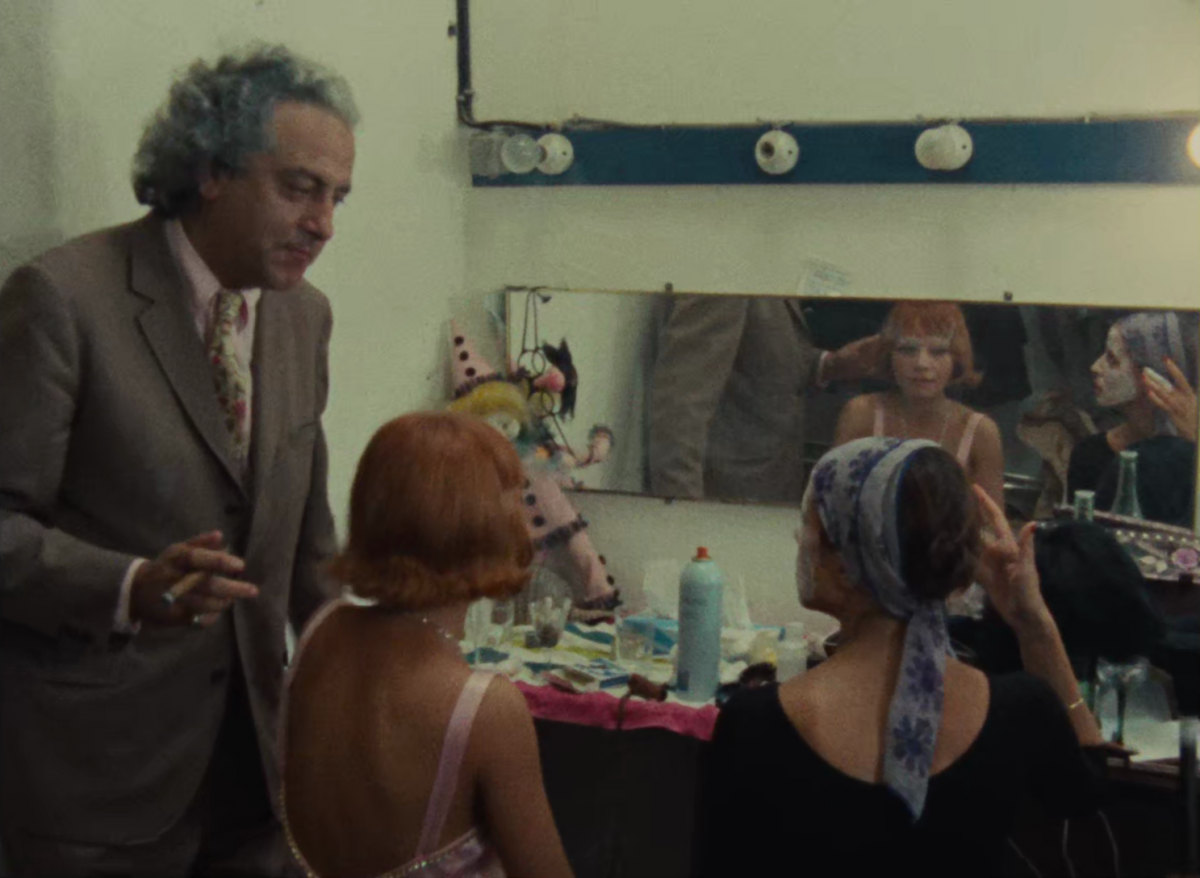 Douchet as M'sieur Dédé in Céline et Julie vont en bateau (Jacques Rivette, 1974)
Douchet as M'sieur Dédé in Céline et Julie vont en bateau (Jacques Rivette, 1974)
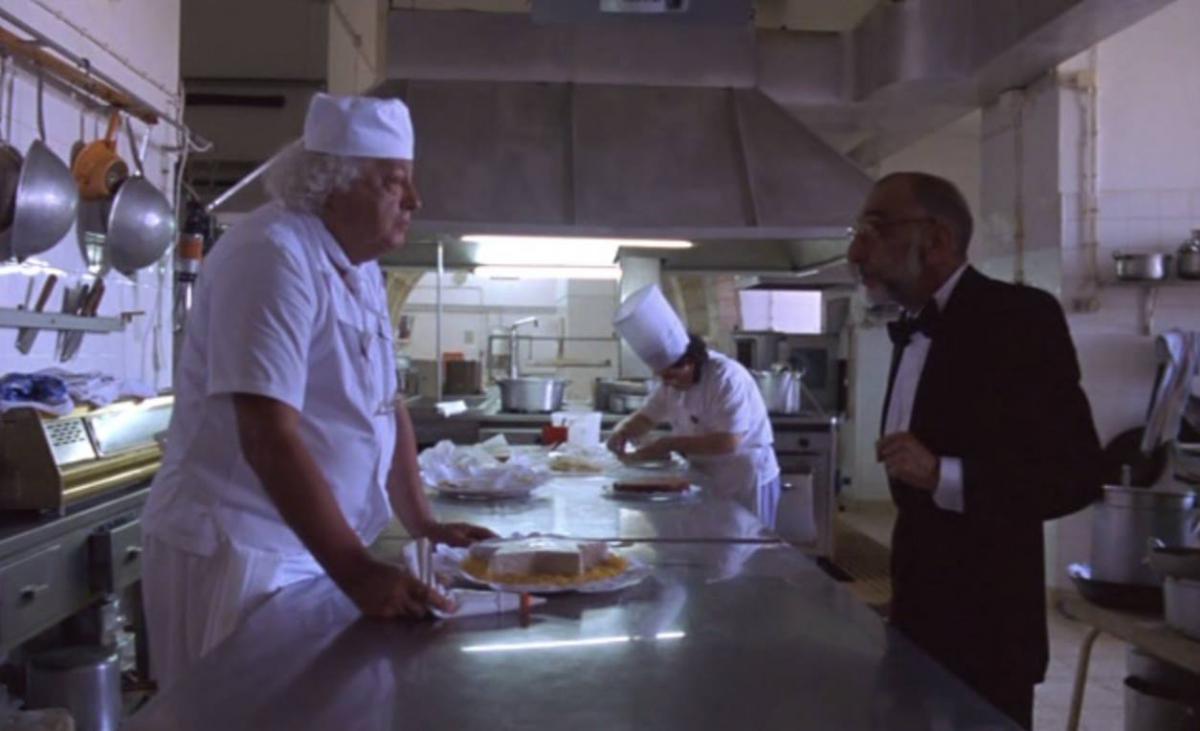 Douchet in As Bodas de Deus (João César Monteiro, 1999) (still: Ayeen Forootan)
Douchet in As Bodas de Deus (João César Monteiro, 1999) (still: Ayeen Forootan)
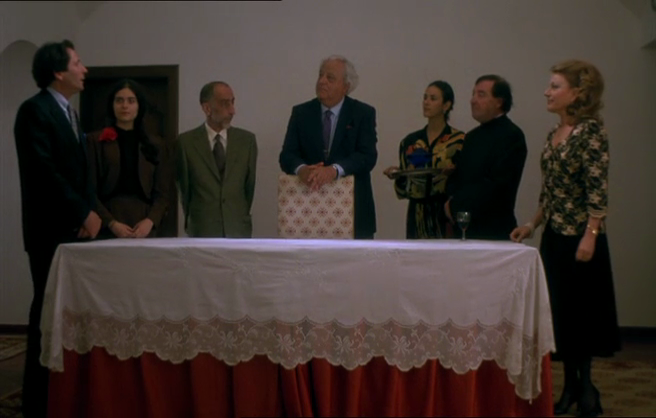 Douchet in A comédia de Deus (João César Monteiro, 1995)
Douchet in A comédia de Deus (João César Monteiro, 1995)
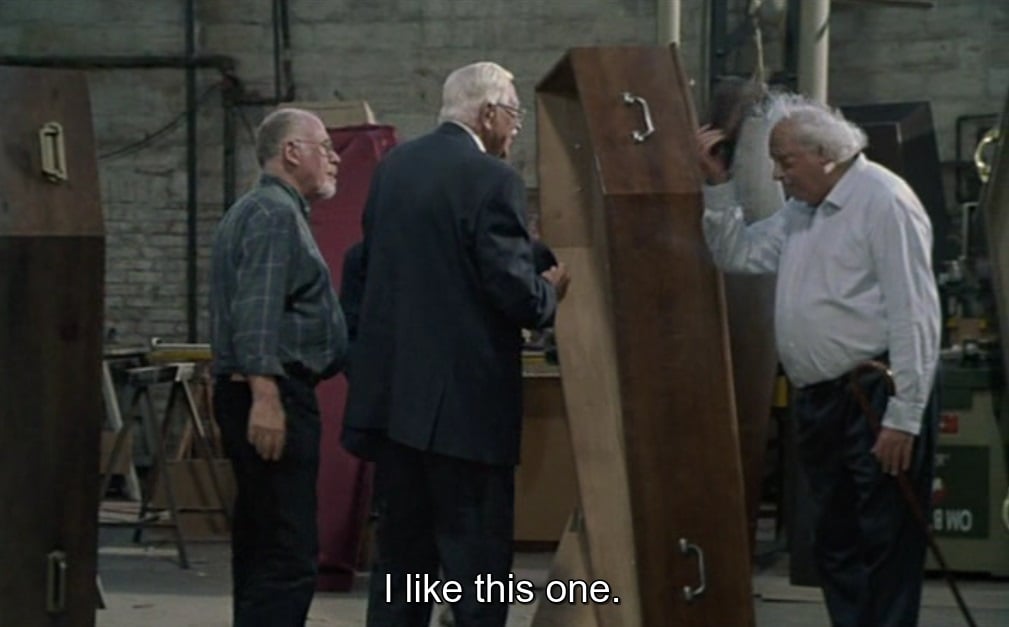 Douchet in Jardins en automne (Otar Iosseliani, 2006) (still: Dan Shoval)
Douchet in Jardins en automne (Otar Iosseliani, 2006) (still: Dan Shoval)
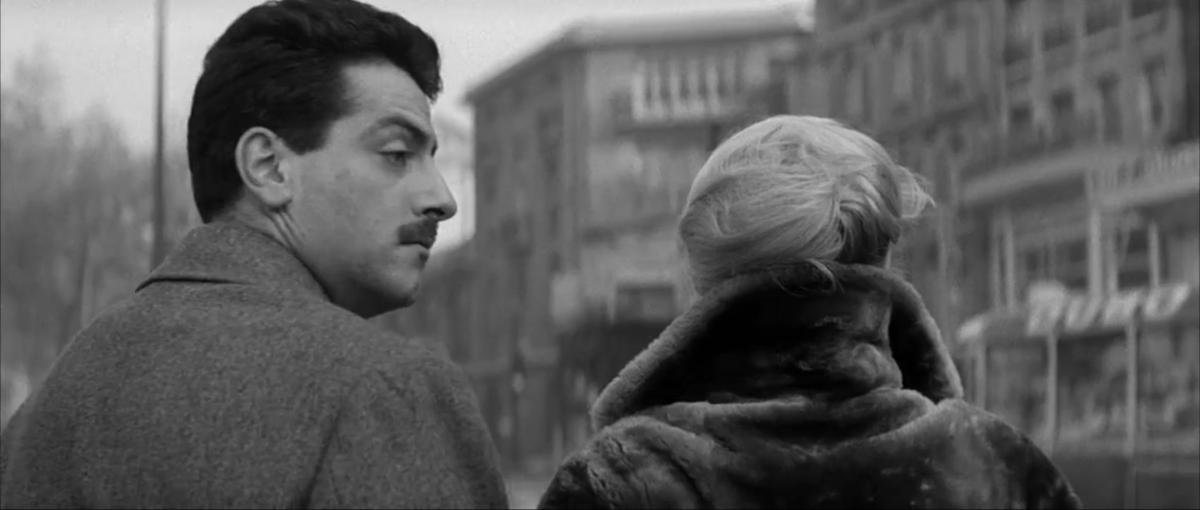 Douchet as the lover of Antoine Doinel’s mother in Les 400 coups (François Truffaut, 1959)
Douchet as the lover of Antoine Doinel’s mother in Les 400 coups (François Truffaut, 1959)
- 1Antoine de Baecque, Eric Rohmer: A Biography (New York: Columbia University Press, 2016), 120.
- 2Jean Douchet, “La fabrique du régard,” Vertigo, 10(1993), 34. Translated by Timothy Barnard and quoted in Christian Keathley, Cinephilia and History, of The Wind in the Trees (Bloomington: Indiana University Press, 2006): 6-7.
- 3Emmanuel Burdeau, “Les mille souvenirs de Jean Douchet,” Mediapart, 22 Novembre 2019.

